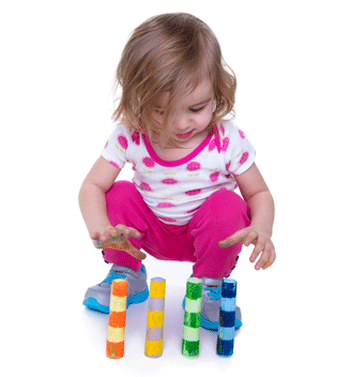Correlation of Cognitive Skills with Brain Fitness and Old Age
The cognitive skills make up a large part of your brain’s functionality. For many years now, it had been thought that with age, these skills deteriorate leaving the brain slow and therefore the reflexes and the thought processes of the seniors became dull with progressive age. That’s why it is frequently said that intelligence decreases with the old age.
However, with many psychologists developing new theories after studying the brain and its functionality in detail, it has come to light that the brain function is directly related to the brain fitness which, like overall physical fitness of the whole body, can be improved with regular exercise.
Brain Exercises = Refined Cognitive Skills = Sharpened Mind
Therefore, the psychologists and sociologists working on these theories have successfully been able to bring this point home that just as one can work to improve the overall fitness and agility of the body by working out, similarly, a mind can remain sharpened for as long as you keep it fit by regular brain exercises.
In simple words, if you keep up with your physical workout for as long as you can, you will remain fit, healthy and agile no matter what your age is. Similarly, if you keep on indulging in brain fitness exercises that sharpen each of the cognitive skills, then you will remain sharp, focused, attentive and astute even when you have progressed well into your senior years.
Identifying Various Cognitive Skills
This correlation between cognitive skills, brain fitness, and age leads us to identify differences in abilities which make up the cognitive skills.
1. Attention Skill:
The attention skill, which translates to the individual’s ability to attend to the information being given, can be further subdivided into three types. For example,
1.1. Sustained attention: this is the ability to be focused on one task. The amount of time for which the individual remains focused is also noted.
1.2. Selective Attention: This is the ability of an individual to remain focused on the task when he is being subjected to another related and/or unrelated sensory input, also known as distractions.
1.3. Divided Attention: This is the ability to recall information when performing another task or when attending to two different assignments at the same time, also known as multi-tasking.

2. Memory Skill
The memory skill is related to the individual’s ability to store information in mind and to recall that information whenever necessary. Memory has also been divided into two different types,
1.1. Long-Term Memory: As the name suggests this is the ability of the individual to recall something from his memory that once had been stored in the past. Long-term memory especially comes in useful in activities like spelling, giving a test, maintaining some form of relationship and comprehending information related to past knowledge.
1.2. Short-Term Memory: This is the ability of the individual to apprehend and withhold information in the immediate awareness while operating another task mentally. Individuals who suffer from short-term memory problems might face trouble multi-tasking or with concentrating on the task at hand.
3. Logical Thinking and Reasoning Skills
This skill requires the mind to draw reason and solve problems when faced with unfamiliar information. The problem-solving ability and the capability of forming concepts and deduce conclusions enables a person to analyze the conditions and the relationships that exist between different details. It is a unique skill of the human mind and helps in rationalizing the daily events.
4. Auditory Processing Skill
Of course, this skill is all about processing, recognizing, blending and segmenting auditory stimuli. This ability is required both for reading and writing with proper spellings. Deficiency of this skill can, therefore, lead to multiple issues.
5. Visual Processing Skill
This is the ability to comprehend, analyze and even think in visual images. It stimulates the sensory perception of the surrounding. You build images in your brain with the help of words, sounds and other details to make more sense of the information.
6. The Skill of Processing Information Quickly
This skill is about the rate at which the mind can process the information. The tasks that an individual is asked to complete while being assessed for this ability comprise of both simple and complex problems. Individuals with slow processing speed face quite a lot of difficulty.
7. Reading and Writing Skills
The cognitive skills are intimately connected with the auditory processing skill of the person.
Practice with Free Aptitude Tests
Recent Articles
-
What type of test did I take
Apr 04, 22 04:09 AM
I was given a psychological test years ago, but wasn’t told what it was for. The rating used a bell curve and my score fell in the above average not yet -
ﹰﹰﹰﹰﹰﹰﹰGOOD
Aug 13, 21 03:20 PM
Since the enneagram test helps people to understand their strength and weaknessess. And helps them remove their weaknesses then the test is good -
Knowing the inner me
Aug 13, 21 03:17 PM
Sometimes I ask myself that is this my behaviour or not? Because I am really shy and I lack confidence, I find it hard to socialize with other people.I
